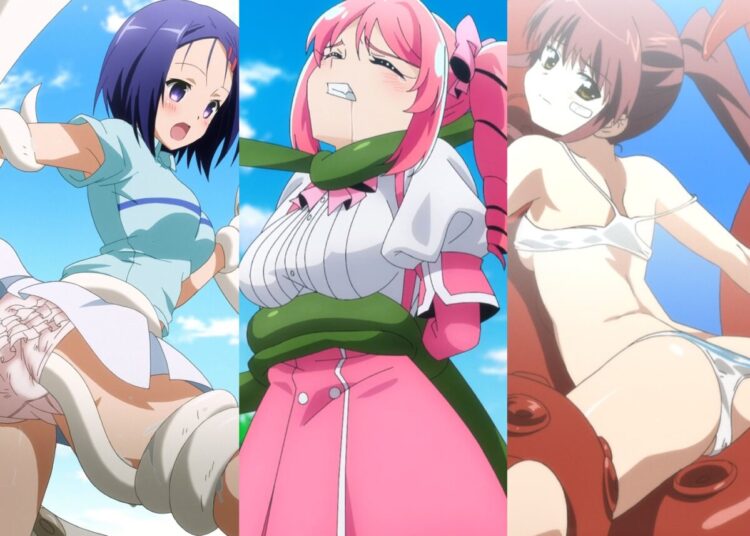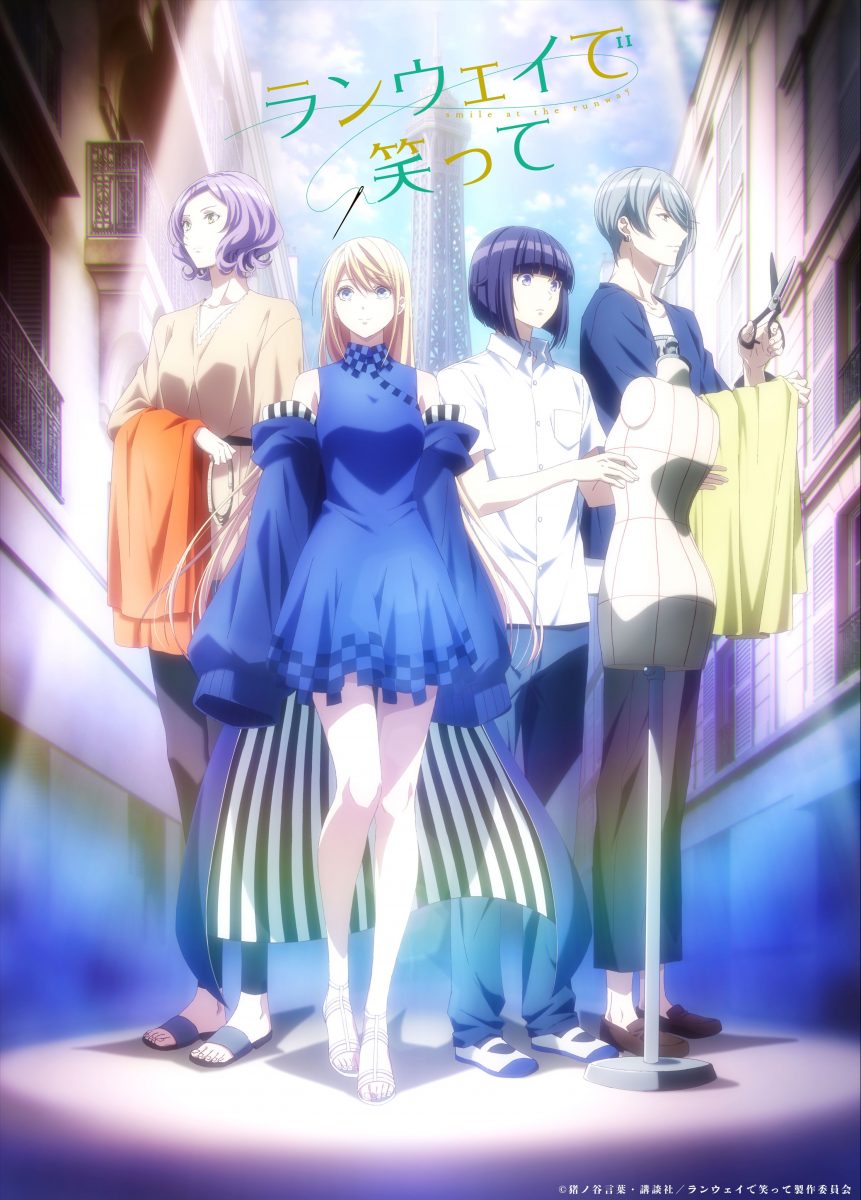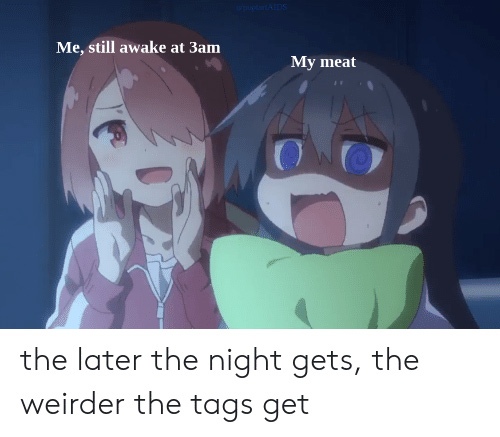
There’s a lot to love about anime and related popular culture. Compelling characters who go on personal journies that are great for fans to follow. Big, dramatic stories in which the future of high school clubs or entire planets can hang in the balance. Highly emotional romantic encounters in which characters find satisfying love with each other, either as part of the official story or in the minds of fans, who “ship” their favorite characters together in fanart. But not every kind of story is loved equally, and many fans have decided that they hate NTR.
The word is netorare, commonly abbreviated NTR. It literally means “sleep-taken” and involves stories in which one person (usually female) is “stolen” sexually by a male who isn’t her intended romantic partner. The genre ranks pretty highly as one of the top “tags” that fans hate, or say they hate, and there are many memes about why NTR is the worst thing ever invented by humanity. On the other hand, like a traffic accident they can’t look away from, it’s likely that some fans have more complex feelings about the genre.
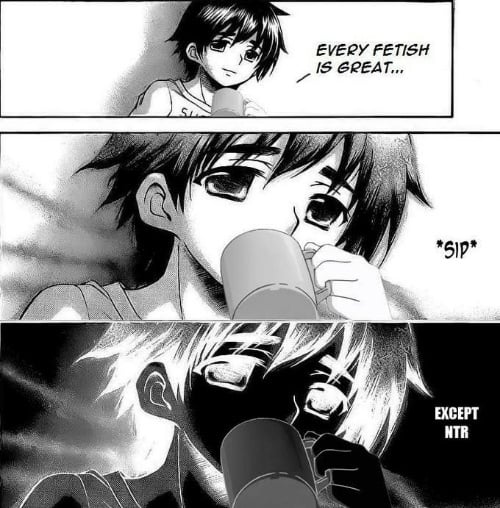
I asked J-List’s Twitter followers to tell us their views on netorare, and got some interesting responses.
- Obviously, the most commonly given reason why some fans hate the genre is that they sympathize with the character whose girl is being stolen, perhaps “self-inserting” themselves into that character and experiencing his sadness.
- Some fans said that they enjoyed stories involving NTR because of the heightened drama of the situation, perhaps enjoying the cognitive dissonance that comes from two conflicting emotions. One fan said he found the stories enjoyable because they were hilarious.
- The genre is tied to masochistic tendencies and probably enjoyed by fans who appreciate those kinds of themes in other media.
- Interestingly, fans seem to react differently to the term netorare than they might to seemingly identical genres such as hitozuma (unfaithful married woman) or chijo (slut).
- Traditionally, yaoi and yuri seem to be enjoyed by straight females and males who learn to appreciate viewing male/male and female/female relationships that they could not, by definition, participate in, which removes the stress that could come from being rejected romantically. Fans might dislike NTR because it does the opposite, making viewers experience this emotion vicariously.
- Personally, I find it useful to assume anything that causes such a strong reaction by fans comes from a deep part of the brain, rather than assuming it’s part of the normal workings of our conscious minds. For fans who have strong feelings about NTR, it’s almost an automatic chemical reaction from deep inside.
Because I’m a “language otaku” who’s interested in where words come from, I dug into the origin of the term. It seems to have come from the Japanese translation of William Shakespeare’s play Othello, where it’s used in a line by Iago in Act 3. It further entered cultural awareness when a Japanese film called Netorare Sousuke was released in 1992.
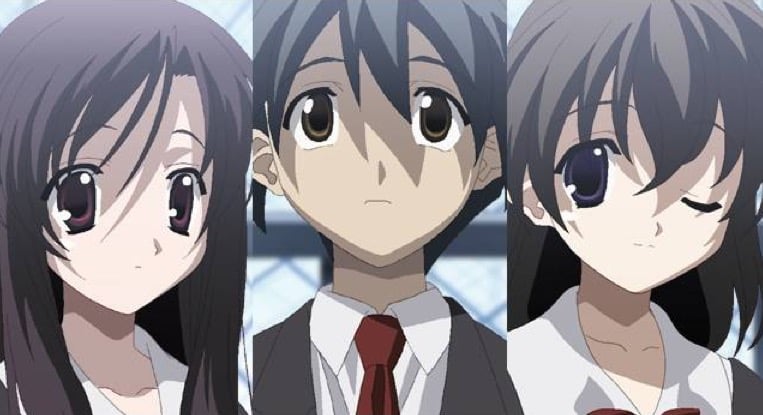
Did School Days Cause the Hate for NTR?
One of the bolder experimental anime series to come out in the past two decades was School Days. It was the story of a love triangle between Makoto, the shy Kotonoha and the slightly devious Sekai. When Sekai offers to help Makoto realize his love with Kotonoha by teaching him how to kiss a girl properly (what could go wrong with that?), he falls for her instead, and a horrific story is set in motion that (in the original ending that was made for the anime version) ends in bloodshed. This shocking ending was so traumatic to fans of the series that they (according to my own personal theory) became negative on stories involving this kind of intense love triangle.
And yet, when JAST USA published School Days (and the prequel Shiny Days), both games proved extremely successful, in part because of their fame and also because they’re the only two fully animated games in existence.
(If you’ve avoided the game because of the violent ending in the anime, note that this ending is not part of the game. There are 5-6 “violent” endings in the game, but also normal happy endings, including happy endings and several where you marry Setsuna, so give School Days a try! Also, the prequel Shiny Days has no violent endings, and mostly focuses on who is having sex with who, with every character’s mother being a romanceable character. Great for MILF fans!
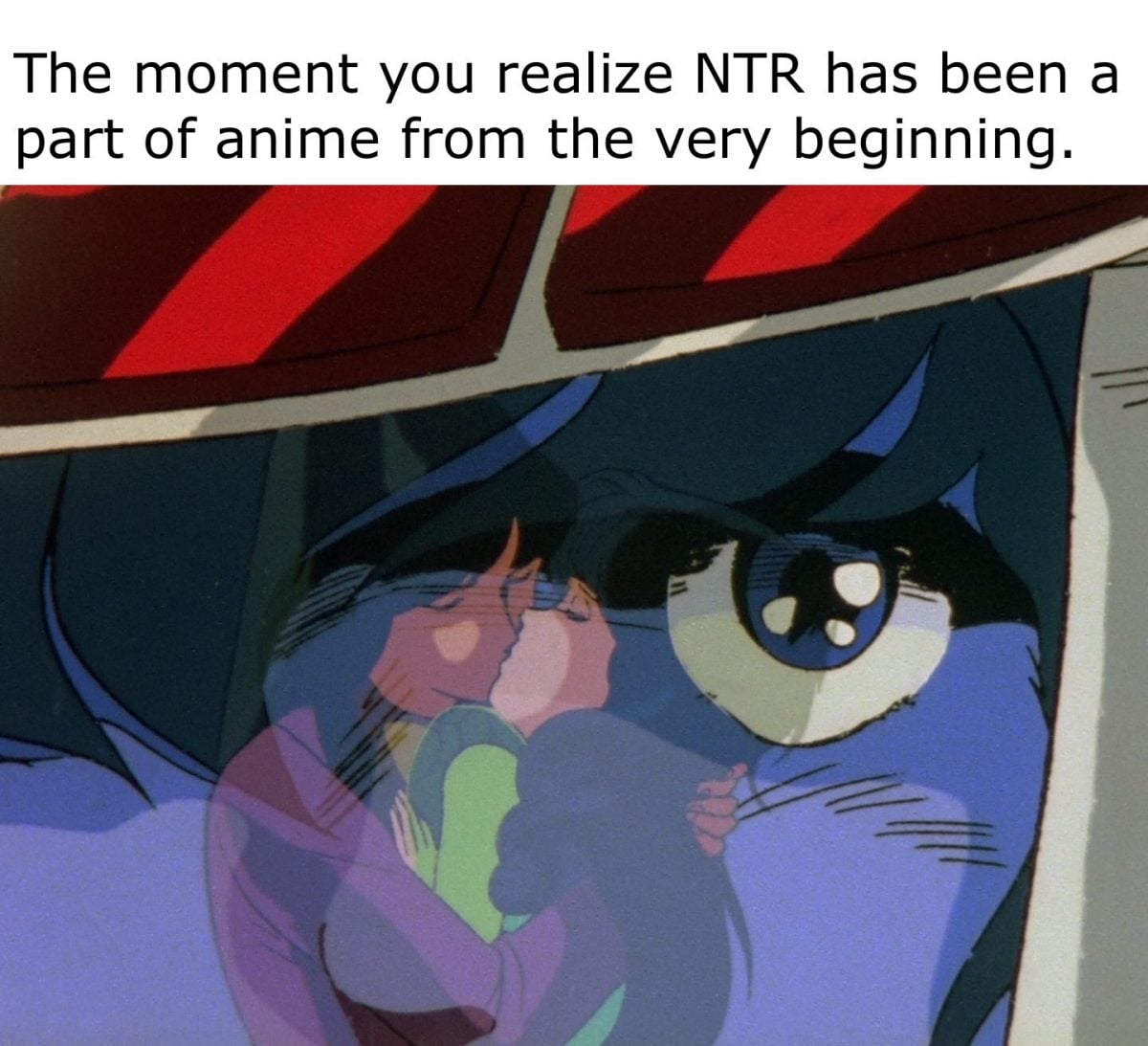
The Most Famous Netorare Doujinshi
Our sister brand J18 has published an uncensored version of one of the most legendary netorare works ever, Netorare Girlfriend, by talented artist Satou Kuuki. It’s a legendary doujinshi about the fall of Mizuki from a pure track-and-field girl into the plaything of her school’s coach. It’s so famous that it’s received an official ero toy and a JAV release, and is now available in 100% uncensored and translated form, a “perfect edition” that combines both volumes (originally published separately) into one, for fans outside of Japan. Order your copy now!
Do you have any strong feelings on the subject of netorare? Will you be picking up this gorgeous English-language doujinshi? Let us know on Twitter!
If you’re curious to read one of the most famous NTR stories ever, our partner J18 has licensed and published the legendary Netorare Girlfriend doujinshi, combining both of the original doujin works into one “perfect edition,” which contains the whole story and is of course 100% uncensored, with all the juicy details you want to see. In stock in San Diego, order your copy now!




